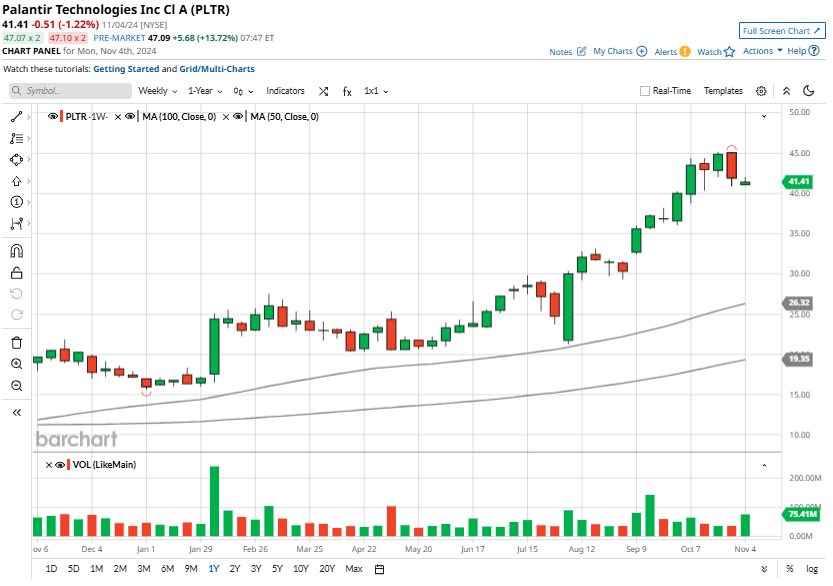EV Mandate Faces Strong Opposition From Car Dealers

Table of Contents
Financial Concerns Fueling Dealer Resistance to EV Mandates
The financial implications of the EV mandate are proving to be a major sticking point for many car dealerships, especially smaller independent businesses. The high upfront costs and uncertainties surrounding the EV market are creating a climate of apprehension and resistance.
High Upfront Investment Costs for EV Infrastructure
Adapting to the EV mandate requires significant capital investment. Dealerships must invest heavily in new infrastructure to support electric vehicles, including:
- Charging stations: Installing a network of fast and reliable charging stations requires substantial investment, particularly for larger dealerships needing to accommodate multiple EVs simultaneously.
- Specialized EV servicing equipment: Maintaining and repairing EVs requires specialized tools and equipment that are different from those used for ICE vehicles. This represents a substantial added expense.
- Employee training: Sales staff and service technicians need specialized training to effectively sell and service EVs. This involves significant training costs and potentially lost productivity during training periods.
These costs disproportionately impact smaller dealerships, potentially forcing them out of business if they cannot secure sufficient funding or government support. While some government incentives exist to offset these costs, they often fall short of covering the total expense, leaving many dealers struggling to meet the requirements of the EV mandate.
Lower Profit Margins on EV Sales (Compared to ICE Vehicles)
Dealers are also concerned about the lower profit margins associated with EV sales compared to their ICE counterparts. Several factors contribute to this:
- Lower service revenue: EVs have fewer moving parts and require less frequent maintenance than ICE vehicles, leading to a reduction in service revenue for dealerships.
- Increased competition: The EV market is becoming increasingly competitive, with established and new players vying for market share, putting downward pressure on profit margins.
Data projections from various sources suggest that, currently, the profit margins on EV sales are considerably lower than those on ICE vehicles, making the transition a financially challenging prospect for many dealerships.
Uncertainty Surrounding EV Market Demand and Future Regulations
The long-term viability and profitability of the EV market remain uncertain, contributing to dealer hesitancy. Concerns exist regarding:
- Rapid technological shifts: The rapid pace of technological advancements in the EV sector creates uncertainty about the lifespan of current EV models and the future demand for specific technologies.
- Changes in government regulations: The regulatory landscape surrounding EVs is constantly evolving, with potential changes to subsidies, tax credits, and emissions standards impacting dealership profitability. This unpredictability makes long-term investment planning extremely difficult.
Operational Challenges of Adapting to the EV Mandate
Beyond the financial aspects, the operational challenges associated with the EV mandate are also significant hurdles for car dealerships.
Inventory Management and Logistical Hurdles
Managing EV inventory presents unique logistical challenges:
- Differing charging requirements: The variety of charging standards and connectors necessitates careful inventory management to ensure compatibility with available charging infrastructure.
- Longer delivery times: EVs often have longer lead times than ICE vehicles, creating inventory planning complexities.
- Different maintenance needs: The specialized maintenance requirements of EVs necessitate changes to storage and handling practices.
The size and weight of EV batteries also pose additional logistical problems, impacting transportation, storage, and handling.
Training Requirements for Sales and Service Staff
The transition to EVs necessitates comprehensive training for both sales and service staff:
- Sales staff training: Sales personnel need in-depth knowledge of EV technology, benefits, and features to effectively engage customers.
- Service technician training: Specialized training is crucial for service technicians to handle EV repairs and maintenance, including high-voltage systems and battery management.
The cost and time involved in providing this comprehensive training program represents a substantial burden on dealerships.
Changes to Showroom Layout and Infrastructure
Integrating EV charging stations into existing dealership infrastructure requires significant modifications:
- Charging station installation: Installing charging stations requires careful planning and may necessitate structural changes to the showroom or service areas.
- Updated showroom displays: Showrooms need to be updated with displays and marketing materials showcasing the features and benefits of EVs.
These changes add to the overall cost and complexity of adapting to the EV mandate.
The Pushback: How Dealers are Fighting Back Against EV Mandates
Faced with significant challenges, car dealers are actively pushing back against the rapid implementation of EV mandates.
Lobbying Efforts and Political Action
Dealer associations and groups are engaging in intense lobbying efforts to influence government policy:
- Advocating for realistic timelines: They are pushing for more gradual implementation of EV mandates, allowing dealers time to adapt.
- Seeking increased government support: They are lobbying for increased financial incentives and support to offset the costs of infrastructure upgrades and training.
These lobbying efforts involve significant resources and demonstrate the seriousness of the concerns within the car dealer sector.
Public Relations Campaigns and Consumer Education
Dealers are also engaging in public relations campaigns to shape public opinion:
- Highlighting potential drawbacks: They are highlighting potential drawbacks of rapid EV adoption, such as the limited charging infrastructure and higher initial purchase prices.
- Educating consumers: They are aiming to educate consumers about the realities of EV ownership, emphasizing the need for a more balanced approach to the transition.
The effectiveness of these campaigns remains to be seen, but they underscore the industry's determination to voice its concerns.
Conclusion: Navigating the Uncertain Future of EV Mandates
The opposition to EV mandates from car dealers stems from a confluence of factors: substantial financial burdens associated with infrastructure upgrades and lower profit margins, significant operational challenges in managing inventory and training staff, and concerns about the uncertain future of the EV market. These mandates have profound implications for the automotive industry and the livelihoods of car dealerships. While the transition to cleaner transportation is undeniably crucial, a pragmatic implementation of EV mandates is essential to mitigate the negative impacts on the car dealer sector. We need a balanced approach that considers both environmental goals and the economic realities facing car dealerships. The ongoing discussion about finding a sustainable solution that balances these competing priorities is vital for the success of the EV mandate and the health of the entire automotive ecosystem. Let's continue the conversation about finding solutions that ensure a just transition for everyone involved in the future of the EV mandate and the broader electric vehicle transition.

Featured Posts
-
 Palantir Stock Outlook Should You Invest Before May 5th
May 09, 2025
Palantir Stock Outlook Should You Invest Before May 5th
May 09, 2025 -
 Investigacao Polonesa Detida Por Se Passar Por Maddie Mc Cann
May 09, 2025
Investigacao Polonesa Detida Por Se Passar Por Maddie Mc Cann
May 09, 2025 -
 Elon Musks Financial Empire From Pay Pal To Space X And Tesla
May 09, 2025
Elon Musks Financial Empire From Pay Pal To Space X And Tesla
May 09, 2025 -
 Red Bulls Driver Dilemma Colapintos Rise And Lawsons Future
May 09, 2025
Red Bulls Driver Dilemma Colapintos Rise And Lawsons Future
May 09, 2025 -
 Ferdinand Reverses Champions League Final Prediction Psg Or Arsenal
May 09, 2025
Ferdinand Reverses Champions League Final Prediction Psg Or Arsenal
May 09, 2025
Latest Posts
-
 Uncovering Morgans Weakness The Intriguing Theory Of Davids High Potential
May 10, 2025
Uncovering Morgans Weakness The Intriguing Theory Of Davids High Potential
May 10, 2025 -
 Is Davids High Potential Morgans Biggest Weakness A Theory Explored
May 10, 2025
Is Davids High Potential Morgans Biggest Weakness A Theory Explored
May 10, 2025 -
 Streaming Now High Potential Show To Replace Roman Fate Season 2 Spoilers Inside
May 10, 2025
Streaming Now High Potential Show To Replace Roman Fate Season 2 Spoilers Inside
May 10, 2025 -
 High Potential Season 1 The Best Candidate For A Season 2 Victim
May 10, 2025
High Potential Season 1 The Best Candidate For A Season 2 Victim
May 10, 2025 -
 The Continued Relevance Of High Potential An 11 Year Assessment
May 10, 2025
The Continued Relevance Of High Potential An 11 Year Assessment
May 10, 2025
